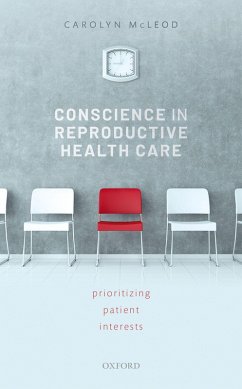Conscience in Reproductive Health Care responds to the growing worldwide trend of health care professionals conscientiously refusing to provide abortions and similar reproductive health services in countries where these services are legal and professionally accepted. Carolyn McLeod argues that conscientious objectors in health care should prioritize the interests of patients in receiving care over their own interest in acting on their conscience. She defends this "prioritizing approach" to conscientious objection over the more popular "compromise approach" without downplaying the importance of health care professionals having a conscience or the moral complexity of their conscientious refusals. McLeod's central argument is that health care professionals who are gatekeepers of services such as abortions are fiduciaries for their patients and for the public they are licensed to serve. As such, they owe a duty of loyalty to these beneficiaries and should give primacy to their beneficiaries' interests in accessing care. This conclusion is informed by what McLeod believes is morally at stake for the main parties to the conflicts generated by conscientious refusals: the objector and the patient. What is at stake, according to McLeod, depends on the relevant socio-political context, but typically includes the objector's integrity and the patient's interest in avoiding harm.
Dieser Download kann aus rechtlichen Gründen nur mit Rechnungsadresse in A, B, BG, CY, CZ, D, DK, EW, E, FIN, F, GR, HR, H, IRL, I, LT, L, LR, M, NL, PL, P, R, S, SLO, SK ausgeliefert werden.









